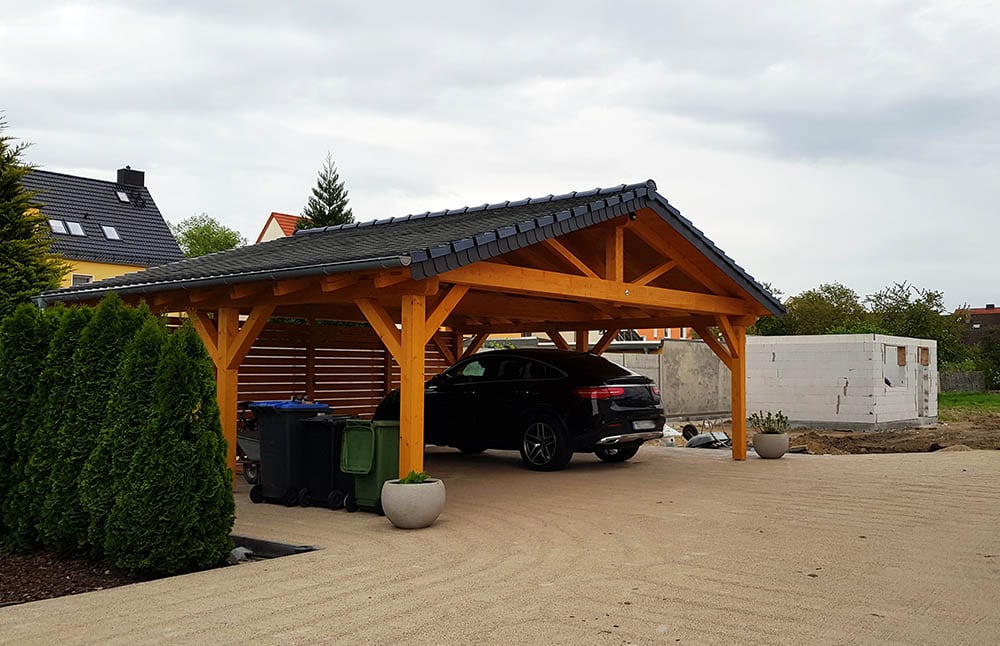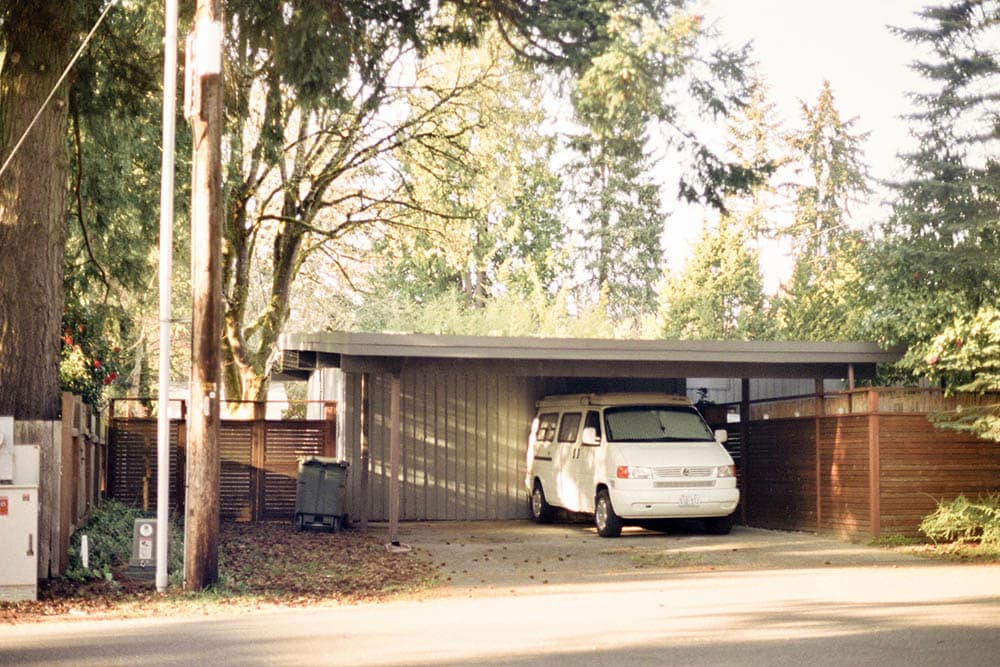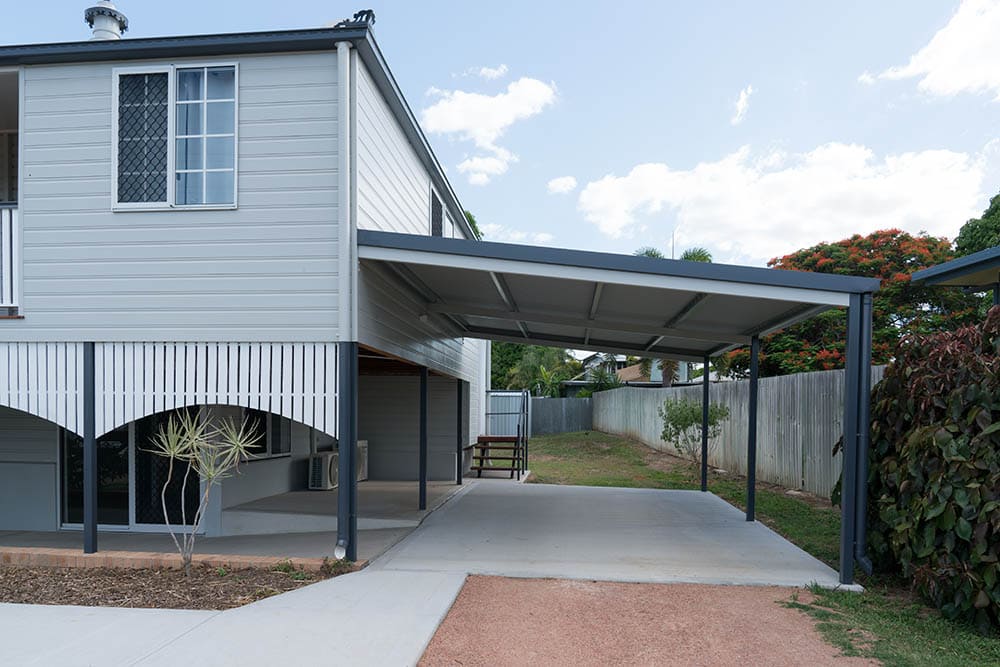Do I Need A Permit To Build A Carport? What You Need To Know!
-

- Last updated:

If you live in a windy, rainy, and snowy area, a carport is an excellent alternative to a garage. All the debris, dust, and moisture can have a substantial effect even on the toughest truck or SUV. However, before you even start thinking about the budget for the materials, the labor cost, and the timeframe, you will most need a permit first. We say “most likely” because this largely depends on the state you live in.
The carport must be built in compliance with the local requirements. That includes the zone restrictions, the size of the carport, whether it’s a standalone or attached structure and more. In this guide, we’ll cover permits, building codes, how to get a permit, and when it might not be necessary.
What Is The Definition Of A Carport?
A carport is a simple, covered structure with one or two walls that protect a vehicle from environmental factors like rain or debris. It can be attached to a garage/house wall or be freestanding. The average height of a carport in the US is 7–8 feet—more than enough for most cars (an RV or tall SUV might not fit, though). As for the width, a standard carport is 12 inches wide.

What Is a Permit?
A permit serves as an official written approval from the city or state. The #1 goal of any permit in the United States is to ensure that the new carport (or whatever else you’re planning to build) will be 100% safe for you and your closest neighbors. In other words, a permit is required whenever a new construction raises health and safety issues in the eyes of the law.
How do you get one? In the US, permits must be officially requested from the city or state. That, in turn, will give the authorities a chance to examine the construction site and carport thoroughly. New buildings need to be up to code, and that’s precisely what these inspections ensure.
Building Codes Explained
In simple terms, building codes are a set of regulations and laws. Proper repair techniques, demolition procedures, fire safety, and design protocols are just some examples of building codes. For the most part, the codes are universal across the States. However, you must always consider the terrain, environmental factors, and local laws.
For example, if you live in an area prone to a natural disaster (fires, floods, or storms), it will be reflected in the permit. High building density and loose soil also play a role. Building codes are written and verified by the city and legislatures, often with the help of construction professionals. Violating these regulations will result in severe consequences, including harsh financial penalties or worse.
When Can I Build Without a Permit?
As mentioned, there are no set laws regarding building permits for carports. However, many states stick to the same rules. So, even though you should never start building a carport before checking with the local inspector’s office, here’s a list of regulations that apply to some US states and cities. If the carport is built in compliance with these rules, chances are, no permit will be required:
- The carport is less than 20 feet long and 12 feet wide
- It’s a one-story, short (less than 15 feet) structure
- No electric cables are running into the carport
- The carport is built from wood (as opposed to metal)
- You’re not building it on a permanent foundation
- It’s a free-standing structure (not attached to the house)
- You live in an area with a mild, comfortable climate
While this list isn’t, in any way, a call to build a carport without consulting with the city first, it will still give you an estimate of what to expect. Plus, you can use this information to determine how much a carport of this size might cost once the government green-lights the project.
Different States, Different Rules
If you’re building a carport attached to your house, you need a permit to build it legally. However, sometimes, carports are classified as temporary, standalone buildings. Yes, we’re talking about the simplified, tent-like carports. If you’re lucky, the local laws won’t require permits for a carport.
Unfortunately, a permit is mandatory in some states for building, repairing, or even enclosing a carport. And what about portable carports, you might ask? Again, this depends on the state/city. For example, many cities in Hawaii, Alabama, Colorado, Michigan, Wyoming, Texas, South Dakota, and North Dakota do NOT require a permit for mobile carports. For the rest of the county, a building permit will be necessary.
You can’t play the guessing game when it comes to building permits. Some states treat portable, temporary, and free-standing carports the same; others have specific laws for each. So, with that in mind, let’s go ahead and see how you can legally obtain a permit in the States.
How Can I Get A Carport Permit In The US?
Nothing is more frustrating than waiting months before the authorities hand you a permit. That’s exactly why we recommend applying for a permit before you start construction.
- Start by contacting the city hall. The only way to legally get a permit is through the government. Besides, the authorities can consult you on the local laws and requirements and tell you what kind of a permit is needed to build a carport. A quick note: if you hired a contractor for this job, they’ll be the ones applying for a permit.
- Get a detailed plan ready. Take some time to outline the size of the carport, the materials used, the setbacks, and where you’re planning on building it. However, most states won’t require a site plan if you’re building a temporary, mobile carport.
- An application comes next. It’s not hard to get an application form. But you must be very careful and thorough when filling it out. Plus, don’t forget that some states and cities charge a fee for the permit. On average, these fees range from $20 to $300 or 1–2% of the building’s cost.
- Don’t rush the licensing office. Even if you want to have the carport done before the first snow or the flooding season, it’s very important to be patient. Usually, it takes local governments 2–3 weeks to approve a permit for a small construction such as a carport.
- Hire professional contractors. Depending on a structure’s size and complexity, you might be obligated to hire a licensed contractor. If you don’t, the carport will be considered illegal construction, and that’s bad news. In contrast, for a tiny mobile carport, it won’t be required.
- Finally, get the Green Tag. The last step in this process is when government representatives arrive at the construction site and inspect the finished work. Once they are convinced that the carport was built in compliance with the local laws and the submitted plan, you will receive a so-called Green Tag. We recommend sticking it to a window or front gate so that everyone (including city officials) can see it

Should You Build Without A Permit? Is That A Good Idea?
No, building before you get a permit is a horrible idea. Even the most “liberal” state or city will force harsh punishments if you build the carport without a permit. Yes, we understand that you might not have the luxury of waiting, and government officials aren’t always swift about green-lighting a project or handing out permits.
Still, no matter how inconvenient a delayed construction brings, it’s better to wait and do it correctly. The penalties are severe, especially in states with strict laws on building permits and codes.
What Do City/State Penalties Look Like?
The first thing to remember is that the fines for an individual are always lower than for a commercial company/contractor. If you’re building a carport without a permit on your property, expect the first warning to cost $500–1000. The second warning will cost twice as much or up to $10,000. In many US cities, the authorities will also order you to demolish the structure.
If you don’t comply, the third warning will be even harsher. Most likely, the government will confiscate the carport. Building without a permit can lead to legal issues with the city/state in certain areas. Also, you won’t be able to sell your house if there’s an illegally built structure on the property. Potential buyers will check this before making you an offer.
- See Also: 5 Free RV Carport Plans You Can DIY
Is A Carport Worth All The Trouble?
Yes, it is, especially if you don’t have the budget for a full-fledged garage. They do a great job of safeguarding vehicles from UV rays, debris, rain, and other elements. Plus, they’re affordable; an average-sized carport will cost $300–$1,000 depending on the size. On top of that, it won’t take much time or effort to build a carport.
There’s no need to pay an expensive contractor to install it. You might need a friend to help you out, however. Last, but not least, carports are known to add value to a house, which makes them a beneficial long-term investment.
Conclusion
Many US citizens have a garage or a carport on their property. However, the laws regarding permits are a bit vague, and there are no nationwide regulations; every state has its set of requirements. That’s why you must check with your local government (or request a consultation from a third party) before building a brand-new carport. If you don’t, the penalties can be pretty harsh.
Today, we discussed the very definition of permits, how to get one, and what the permits in all US states have in common. We also discussed the average cost, what you can expect from the carport building permit laws in different states, and more. Stay tuned for more guides, and we’ll see you next time!
- Related Read: Do I Need a Permit to Build a Pergola or Gazebo?
Featured Image Credit: Zeralein99, Shutterstock
Contents

